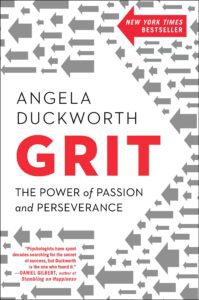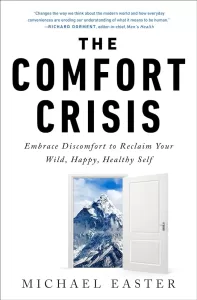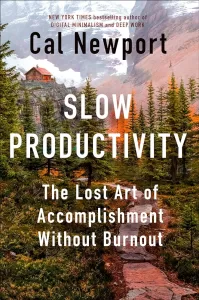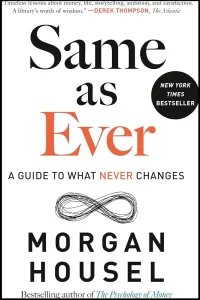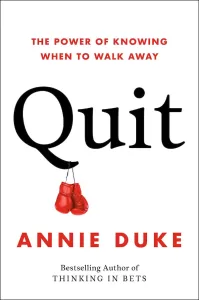Book Review: “Grit”
Book: Grit by Angela Duckworth
Reviewer: Bobby Powers
My Thoughts: 8 of 10
Angela Duckworth made quite a splash with her first book. Grit presents a strong argument against talent reigning supreme in the workplace. Duckworth's research compellingly posits that grit—which she defines as passion plus perseverance—is a better predictor of future success than talent. I was inclined to buy into that concept before reading Grit, and Duckworth pushed me over the edge. This book is especially influential for anyone in a hiring role, where tradeoffs often must be made between raw talent and resume strength versus work ethic and perseverance. If this topic interests you, I'd recommend also checking out Duckworth's TED talk, which you can find at the bottom of this review.
Takeaways from the Book
Grit and Why It Matters
- “In sum, no matter the domain, the highly successful had a kind of ferocious determination that played out in two ways. First, these exemplars were unusually resilient and hardworking. Second, they knew in a very, very deep way what it was they wanted. They not only had determination, they had direction. It was this combination of passion and perseverance that made high achievers special. In a word, they had grit.”
- “What we accomplish in the marathon of life depends tremendously on our grit—our passion and perseverance for long-term goals. An obsession with talent distracts us from that simple truth.”
- “Our potential is one thing. What we do with it is quite another.”
- “Not a day goes by that I don’t read or hear the word talent…It seems that when anyone accomplishes a feat worth writing about, we rush to anoint that individual as extraordinarily ‘talented.’”
- “If we overemphasize talent, we underemphasize everything else.”
- “Enthusiasm is common. Endurance is rare.”
Talent Is Not Enough
- “The human individual lives usually far within his limits; he possesses poses of various sorts which he habitually fails to use. He energizes below his maximum, and he behaves below his optimum…The plain fact remains that men the world over possess amounts of resource, which only very exceptional individuals push to their extremes of use.” -William James
- "Our vanity, our self-love, promotes the cult of the genius. For if we think of genius as something magical, we are not obliged to compare ourselves and find ourselves lacking…To call someone ‘divine’ means: ‘here there is no need to compete.’” -Frederich Nietzsche
- “In other words, mythologizing natural talent lets us all off the hook. It lets us relax into the status quo.”
- “I’ve never really viewed myself as particularly talented. Where I excel is ridiculous, sickening work ethic.” -Will Smith
- “The only thing that I see that is distinctly different about me is: I’m not afraid to die on a treadmill. I will not be outworked, period. You might have more talent than me, you might be smarter than me, you might be sexier than me. You might be all of those things. You got it on me in nine categories. But if we get on the treadmill together, there’s two things: You’re getting off first, or I’m going to die. It’s really that simple.” -Will Smith
Continuous Improvement
- “As soon as possible, experts hungrily seek feedback on how they did. Necessarily, much of that feedback is negative. This means that experts are more interested in what they did wrong—so they can fix it—than what they did right. The active processing of this feedback is as essential as its immediacy.”
- “And after feedback, then what? Then experts do it over again, and again, and again. Until they have finally mastered what they set out to do. Until what was a struggle before is now fluent and flawless. Until conscious incompetence become unconscious competence.”
- “In her interviews with ‘mega successful’ people, journalist Hester Lacey has noticed that all of them demonstrate a striking desire to excel beyond their already remarkable level of expertise…'It’s a persistent desire to do better,’ Hester explained. ‘It’s the opposite of being complacent. But it’s a positive state of mind, not a negative one. It’s not looking backward with dissatisfaction. It’s looking forward and wanting to grow.’”
Deliberate Practice
- “After you’ve discovered and developed interest in a particular area, you must devote yourself to the sort of focused, full-hearted, challenge-exceeding-skill practice that leads to mastery. You must zero in on your weaknesses, and you must do so over and over again, for hours a day, week after month after year.”
- “The really crucial insight of (Anders) Ericsson’s research, though, is not that experts log more hours of practice. Rather, it’s that experts practice differently. Unlike most of us, experts are logging thousands upon thousands of hours of what Ericsson calls deliberate practice.”
- Requirements of deliberate practice:
- A clearly-defined stretch goal
- Full concentration and effort
- Immediate and informative feedback
- Repetition with reflection and refinement
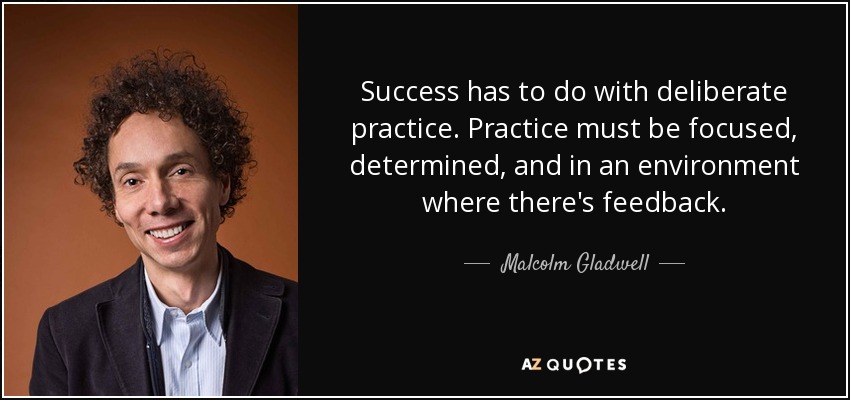
Purpose
- Purpose = “The intention to contribute to the well-being of others”
- “While interest is crucial to sustaining passion over the long-term, so, too, is the desire to connect with and help others.”
- The Parable of the Bricklayers: “Three bricklayers are asked: ‘What are you doing?’ The first says, ‘I am laying bricks.’ The second says, ‘I am building a church.’ And the third says, ‘I am building the house of God.’ The first bricklayer has a job. The second has a career. The third has a calling.”
- "Whatever you do, whether you’re a janitor or the CEO—you can continually look at what you do and ask how it connects to other people, how it connects to the bigger picture, how it can be an expression of your deepest values.”
Fixed vs. Growth Mindset
- Those with a fixed mindset interpret setbacks as evidence that they don’t have the “right stuff”—they are lacking talent and they’re not good enough. They believe that intelligence is largely immutable in each person and can’t change very much.
- Those with a growth mindset believe they can learn to do better. They recognize that although everyone begins with predilections to certain areas, intelligence and talent can be substantially changed with hard work.
- Praising talent reinforces the fixed mindset, whereas praising effort reinforces the growth mindset.
- “If you have a growth mindset, you’re more likely to do well in school, enjoy better emotional and physical health, and have stronger, more positive social relationships with other people.”
- "A fixed mindset about ability leads to pessimistic explanations of adversity, and that, in turn, leads to both giving up on challenges and avoiding them in the first place. In contrast, a growth mindset leads to optimistic ways of explaining adversity, and that, in turn, leads to perseverance and seeking out new challenges that will ultimately make you even stronger.”
Final Thoughts
- “Superlative performance is really a confluence of dozens of small skills or activities, each one learned or stumbled upon, which have been carefully drilled into habit and then are fitted together in a synthesized whole. There is nothing extraordinary or superhuman in any one of those actions; only the fact that they are done concisely and correctly, and all together, produce excellence.” -Dan Chambliss
- Surround yourself with people of grit: “The thing is, when you go to a place where basically everybody you know is getting up at four in the morning to go to practice, that’s just what you do. It’s no big deal. It becomes a habit.”
- "We all face limits—not just in talent, but in opportunity. But more often than we think, our limits are self-imposed. We try, fail, and conclude we’ve bumped our heads against the ceiling of possibility. Or maybe after taking just a few steps we change direction. In either case, we never venture as far as we might have. To be gritty is to keep putting one foot in front of the other. To be gritty is to hold fast to an interesting and purposeful goal. To be gritty is to invest, day after week after year, in challenging practice. To be gritty is to fall down seven times, and rise eight."
Think you’d like this book?
Other books you may enjoy:
- Mindset by Carol Dweck
- Outliers by Malcolm Gladwell
Other notable books by the author:
- (None)
Want to become a stronger leader?
Sign up to get my exclusive
10-page guide for leaders and learners.
